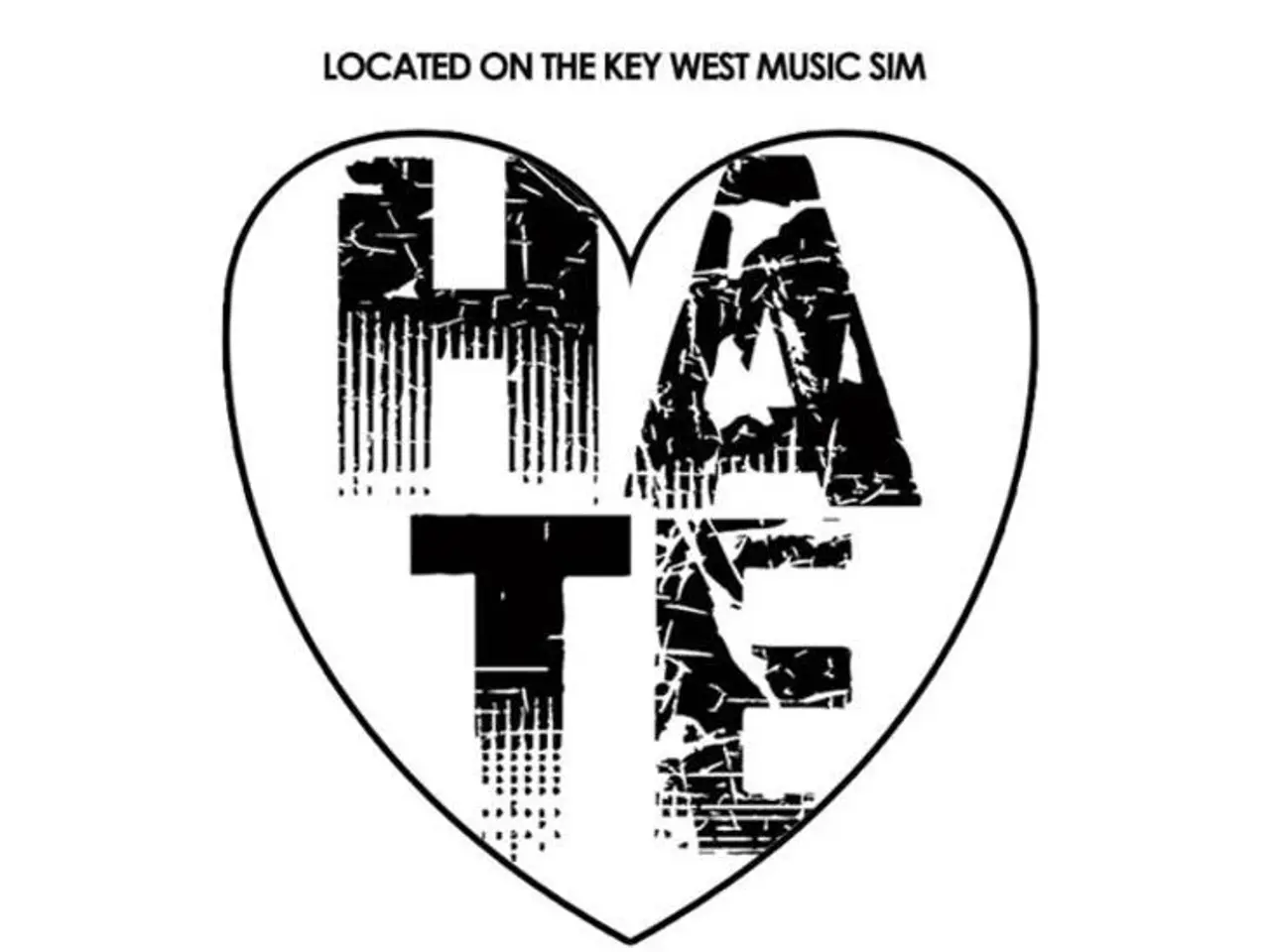Uncovering Online Hate: A Nationwide Crackdown - Bremen Stands Front and Center in the North
- *
Police Crackdown on Internet Hatred: Bremen Emerges as a Key Region in Northern Germany - Crackdown on internet hatred: Bremen positioned as a target in the northern region
In a nationwide push to eradicate cyber-bigotry and incitement, apartments in Emden, East Frisia and the bustling city of Bremen found themselves on the receiving end of a major police offensive. The young suspect in Emden, aged 18, has entered into a cooperative spirit with authorities, according to the Public Prosecutor's Office in Göttingen to DPA. This individual stands accused of distributing Nazi symbols and slogans on Instagram, in violation of the country's laws against the dissemination of such materials.
On the other hand, the Bremen Police executed five search warrants in neighborhoods such as Walle, Huchting, Neustadt, and Horn-Lehe. The investigations stemmed from four ongoing probes due to suspicion of inciting the public, in addition to a fifth case based on the distribution of propaganda from unconstitutional and terrorist organizations. The accused in Bremen consist of four men and one woman ranging from 19 to 68 years of age. During their raids, the investigators managed to secure mobile devices and data carriers.
Bremen's investigations centered around several disturbing online occurrences: an anti-Semitic post on YouTube, a post targeting the Alawites on the X platform, an incident of Holocaust denial on X, and a hateful rant against refugees and asylum seekers. In a deeply troubling display, a video featuring the flag of the terrorist organization "Islamic State" (IS) was shared via an Instagram story.
Coordinated attacks against suspected authors of hateful content occurred simultaneously across Germany from the break of dawn. In total, the law enforcement agencies executed 65 search warrants and engaged numerous suspects in interrogations. As reported by the Federal Criminal Police Office (BKA), there were 180 police interventions in over 140 different cases. No arrests were planned in the operation.
Waves of Hate Speech on the Rise
The most frequent crimes nationwide were incitement of the people, the use of symbols of unconstitutional and terrorist organizations, the approval and encouragement of criminal activities, and insults. According to BKA statistics, the number of known hate speech incidents has escalated drastically each year. With a staggering quadrupling in reported cases from 2021 (2,411 cases) to 2024 (10,732 cases), authorities have dubbed this upward trend the "illumination of the dark field."
Number crunching in Lower Saxony, where Göttingen is located, reveals that the Public Prosecutor's Office registered a total of 5,344 cases in 2023, with approximately half of these cases dismissed either due to lack of evidence or non-criminal nature of the content. About a quarter of the remaining cases were referred to prosecutors in other federal states, while the rest are still being investigated.
Most frequently, hate speech attacks bear a right-wing extremist background, often involving anti-Semitic or racist incitement of the public, as well as hate speech against the LGBTQ+ community. Apart from targeting politicians, harassment extends to various other targets in society, crossing all generational lines. While younger individuals tend to spread hate speech on platforms such as TikTok and Instagram, older users resort to Facebook to propagate their bigoted messages.
Victims of Online Harassment Seek Industry Action
Counseling centers for online harassment victims are calling upon social networking providers to strengthen their efforts in combating hate speech. On request, the "Reporting Center Respect!" revealed the urgent need for these platforms to take greater responsibility and implement concrete security measures to effectively protect their users. Critics have long pointed fingers at giants such as X and Facebook for not taking reporting hints and concerns seriously enough. Their lack of cooperation hampers efforts by law enforcement agencies, as claimed by advisor Claudia Otte-Galle of HateAid (Berlin).
In essence, the increasing trend of hate speech incidents online is pushed back through a combination of punitive legal enforcement, collaborative multi-stakeholder initiatives, and public awareness campaigns that work to build an engaging and respectful online environment.[1][4]
- The crackdown on cyber-bigotry and incitement, taking place across Germany, has extended to the cities of Emden and Bremen, as part of a nationwide effort. This offensive follows the distribution of Nazi symbols and slogans online, an act that violates the country's employment policy on the dissemination of such materials.
- In the face of rising hate speech incidents, particularly those with a right-wing extremist background, counseling centers for victims are urging social networking providers to take stronger actions against hate speech. They call for these platforms, including X and Facebook, to implement concrete security measures to protect their users more effectively, as their lackluster approach to reporting issues hinders law enforcement efforts.





